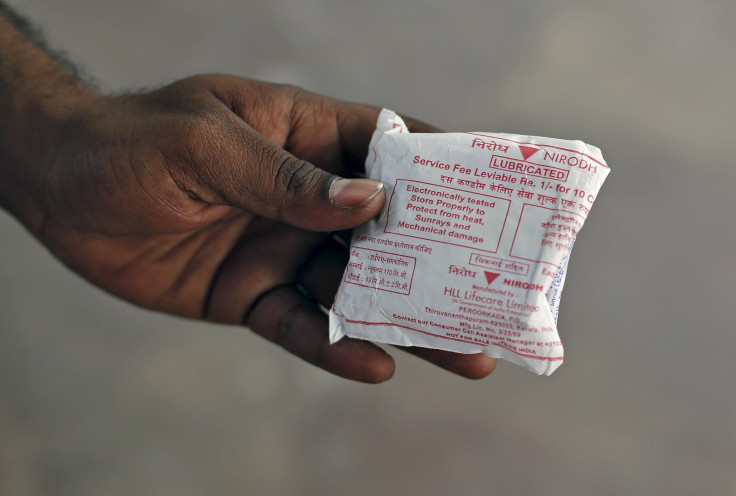India To Repackage State-Supplied Condoms In Bid To Attract Users

NEW DELHI (Reuters) - When it comes to the wrappers of India's state-supplied condoms, boring is out, attractive is in, but erotic is too much. India is readying a redesign of the staid packaging of its half-century-old condom brand, incorporating pictures of handsome men and gorgeous women, in a desperate bid to seduce customers drawn to fancier versions sold by private firms.
The government gives away 650 million 'Nirodh' condoms each year in its safe sex campaign, but the text-heavy display and condoms crammed into a white plastic wrapper are a turnoff for many.
"The government-made condom looks sick," said Vinod Poddar, a taxi driver in the capital, New Delhi, who has avoided the brand for years. "We need looks and quality, and it lacks both."
To change this perception, India's health ministry has set up a panel to review pictures as well as more vibrant colors for the wrappers of condoms made by state-owned HLL Lifecare.
The male condom market in India, which has a population of more than 1.2 billion, was worth $152 million by 2011 and is expected to grow 18 percent this year, says market research agency Ken Research.
But Nirodh fell out of favor over the years, in the face of competition from pricier Durex, made by the Reckitt Benckiser Group and KamaSutra, made by the Indian unit of Australia's Ansell Ltd..
Indian firms TTK Healthcare and Mankind Pharma also sell condoms. While Durex uses vivid colors on its condom packs, KamaSutra and other Indian brands deploy pictures of scantily clad models.
Although "attractive" is the keyword in conservative India, where many men are still too embarrassed to shop for condoms, health ministry officials vowed not to go too far.
"The packaging will have attractive images of couples, but they will not be erotic," said one.
The free Nirodh condoms cost the exchequer 1.8 rupees (3 U.S. cents) apiece, but the government is willing to cough up more to boost their appeal to youngsters. In comparison, each Durex condom costs about 12 rupees (20 U.S. cents).
Many villagers shun Nirodh because it's badly packaged and doesn't match the quality of rivals, a health worker in the central state of Chhattisgarh told Reuters.
The government vouches for the quality of its condoms, with a health ministry official saying they will be a lot more popular in their new avatar.
"Nirodh is not finding favor right now," the official said. "But you will be tempted to pick up the product."
By Aditya Kalra
(Editing by Tony Tharakan and Clarence Fernandez)



























